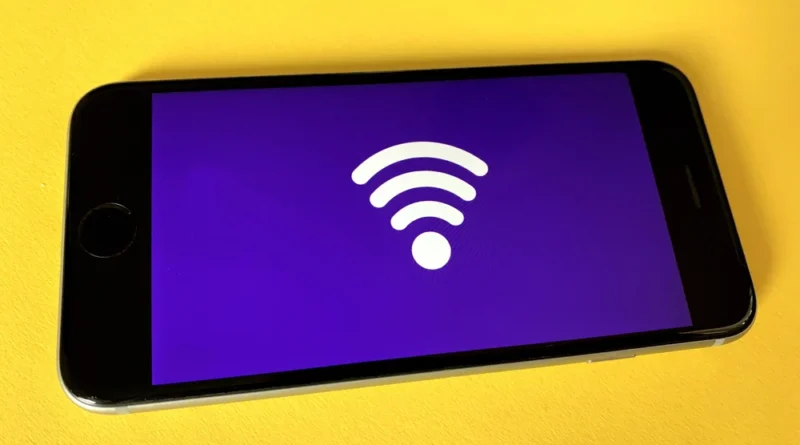Is WPA2 Password the Safest Form of WiFi Password Security? Exploring Wireless Network Protection
In an increasingly connected world, wireless networks have become an integral part of our daily lives. From the convenience of our homes to the bustling offices and coffee shops, we rely heavily on WiFi networks for our internet needs. With this increased reliance comes the need for robust security measures to protect our data from prying eyes and potential threats. One of the most commonly used security protocols for WiFi networks is WPA2, but is it really the safest form of WiFi password security? In this article, we will delve into the world of wireless network protection to explore the strengths and weaknesses of WPA2 passwords.
Understanding WPA2: The Gold Standard of WiFi Security
WPA2, or Wi-Fi Protected Access 2, is the second generation of WiFi security protocols and has long been considered a gold standard in wireless network security. It was introduced in 2004 as an improvement over its predecessor, WEP (Wired Equivalent Privacy), which had several vulnerabilities that made it relatively easy for attackers to crack the encryption.
WPA2 uses the Advanced Encryption Standard (AES) protocol, which is highly secure and nearly impossible to crack through brute force attacks, especially when combined with a strong, complex password. AES encryption has become the industry standard for securing sensitive data, not just in WiFi networks but also in other applications like online banking and secure messaging.
Also read; 10 Mind-Blowing Tech Innovations That Are Changing the World
The Strengths of WPA2 Passwords
- Robust Encryption: As mentioned, WPA2 employs AES encryption, which is known for its robustness. It provides strong protection for your data as it travels between your device and the WiFi router.
- Complex Passwords: WPA2 allows for the use of long and complex passwords, making it challenging for attackers to guess or crack them. A strong password should include a combination of uppercase and lowercase letters, numbers, and special characters.
- Resistance to Brute Force Attacks: WPA2 is highly resistant to brute force attacks, where an attacker attempts to guess the password by trying every possible combination. With a strong password, it would take an impractical amount of time to crack.
The Weaknesses of WPA2 Passwords
- Password Guessing: While WPA2 is secure against brute force attacks with strong passwords, it is vulnerable to password guessing if a user sets a weak or easily guessable password. Common passwords like “123456” or “password” are still prevalent and easily cracked.
- Dictionary Attacks: Attackers can use dictionaries of commonly used passwords or words from a dictionary to attempt to guess the WiFi password. This method can be successful if the password is not sufficiently complex.
- WPS Vulnerabilities: Some routers have a feature called Wi-Fi Protected Setup (WPS), which can be exploited by attackers to gain access to the network without needing the password. While it’s recommended to disable WPS, many users leave it enabled, unknowingly exposing their network to potential attacks.
The Evolution of WiFi Security: WPA3
As technology advances and security threats evolve, so does the need for stronger security protocols. WPA3, the successor to WPA2, was introduced in 2018 to address some of the vulnerabilities of its predecessor. WPA3 offers several enhancements over WPA2, including:
- Simultaneous Authentication of Equals (SAE): WPA3 uses a more secure method for establishing the initial connection between a device and the network, making it resistant to offline dictionary attacks.
- Stronger Encryption: While WPA2 uses AES-CCMP, WPA3 introduces the use of the Galois/Counter Mode Protocol (GCMP), which is more secure.
- Protection Against Brute Force Attacks: WPA3 includes measures to protect against offline brute force attacks, making it even more secure when users choose strong passwords.
Also read; Elevate Your Productivity: Must-Have Office Gadgets for Tech-Savvy Professionals
Conclusion: The Importance of Strong Passwords
In conclusion, while WPA2 passwords can offer a high level of security when combined with strong, complex passwords, they are not invulnerable. The security of your WiFi network ultimately depends on the strength of your password. Choosing a password that is long, complex, and unique is crucial to ensuring the safety of your wireless network.
As technology continues to advance, it’s advisable to keep up with the latest security protocols. Consider upgrading to WPA3-compatible hardware and taking advantage of its enhanced security features when possible. Remember, your WiFi network is only as secure as the weakest link, which, in many cases, is the password. So, whether you choose WPA2 or WPA3, always prioritize the use of strong, unique passwords to protect your wireless network and the data transmitted over it from potential threats.



